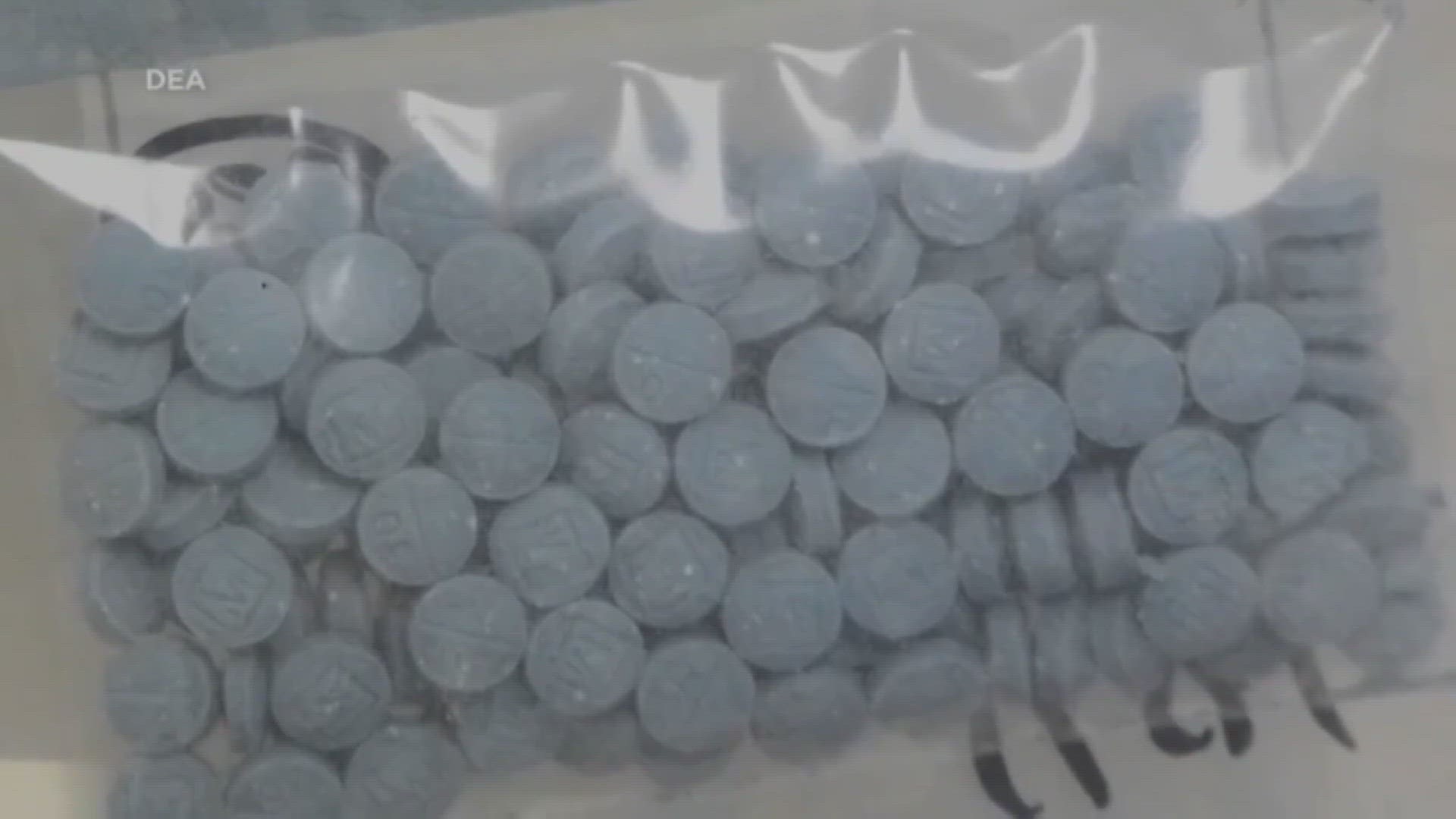SACRAMENTO COUNTY, Calif. — Nearly 98% of oxycodone pills recovered in Sacramento are actually fentanyl, according to recent statistics from the Sacramento County Crime Lab.
Each pill has enough fentanyl to kill a person, something two Yolo County families know firsthand.
Kristy Lee lost her 23-year-old son Jake in April 2021 after he took a pill he thought was Percocet, but was actually fentanyl.
"A coroner’s report showed [the pill] was 100% fentanyl, and he passed away immediately,” said Lee.
Jeff Davies lost his 18-year-old daughter Adriana in February 2021, just two months before Jake died.
Their stories are identical. Both expected oxycodone, a strong painkiller, and got fentanyl.
“She did not realize she was purchasing the pill that she bought was stamped, colored to look exactly like a prescription oxy pill,” said Davies.
The Sacramento County Crime Lab sees these pills stamped as M30 tablets to look like oxycodone.
Criminalist Dani Gray says spotting a counterfeit can be hard, but there are some telltale signs.
“The M and the square is off center... one looks more green, real M30s are a baby blue,” she said.
Drug chemistry section supervisor Kristel Suchland, said the majority of the cases coming through the lab involve fentanyl.
"I would say 98% to 99% [of pills] we see are counterfeit. We rarely get a blue M30 pill that is oxycodone. It's fentanyl at this point,” she said. “You're on the street, you get a single pill, you have nothing to compare that against. You don't know, all you know is it's a blue pill, it has an M30 stamp on it. But it's not, especially here.”
Suchland says she's especially worried about younger people. She presents this information to schools and oftentimes hears stories of students giving or getting "just one pill" from their friends.
She says people often have a stigma against thinking pills are dangerous because they're associated with coming from a pharmacy instead of potentially being created by drug dealers.
“You don't know what's in that pill. Honestly, the dealer probably doesn't even know half the time what they're selling you. They don't know what's in it, but they're going to tell you what they want to hear,” said Suchland.
Davies isn't surprised about the growing problem.
"It’s something that in my advocacy and in the people that I talk to — the parents, the kids I talk to — I believe anything you get anywhere other than a prescription from a pharmacy, you are playing Russian roulette,” he said.

















